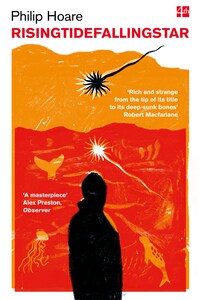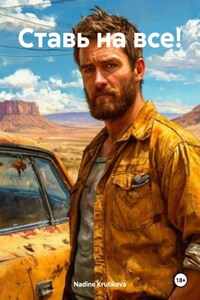First published in Great Britain in 2017 by
Fourth Estate
An imprint of HarperCollinsPublishers
1 London Bridge Street
London SE1 9GF
www.4thestate.co.uk
Copyright © Philip Hoare 2017
Cover design and illustration by Joe Lyward
Philip Hoare asserts the moral right to be identified as the author of the work.
A catalogue record for this book is available from the British Library
All rights reserved under International and Pan-American Copyright Conventions. By payment of the required fees, you have been granted the non-exclusive, non-transferable right to access and read the text of this e-book on screen. No part of this text may be reproduced, transmitted, down-loaded, decompiled, reverse engineered, or stored in or introduced into any information storage and retrieval system, in any form or by any means, whether electronic or mechanical, now known or hereinafter invented, without the express written permission of HarperCollins.
Source ISBN: 9780008133702
Ebook Edition © 2017 ISBN: 9780008133696
Version: 2018-05-24
Not long ago but long enough, I looked into the old cupboard in my bedroom and at the back, among the piles of floppy discs and peeling spines of my children’s encyclopaedias, I found a notebook. It was in an old-fashioned imperial format, half-bound with blue cloth and shiny paper, its fore-edge delicately spattered like a blackbird’s egg. It came from the cable factory where my father had worked all his life. Inside, on feint-lined pages intended for notes on amps and electrical resistance, were writings and drawings I’d done when I was about fifteen years old.
On each left-hand page was a picture, in bright poster paint: a futuristic city, art deco designs, lithe figures out of some space opera or Russian ballet; fantastical images I’d collected in my teenage head. Halfway through the book I’d painted something I’d really seen: a leaping killer whale, slick with clear nail varnish to mimic its black-and-white skin, as if it had jumped out of the sea, rather than a concrete pool in a suburban safari park.
On the right-hand pages I’d composed lyrics and prose, the things I couldn’t say out loud. Looking at this parade of longings forty years later, I realised that the fifteen-year-old me had mapped out his life along those pale blue lines. As if I’d already lived in reverse. Everything that came after had been entered in that blue notebook, balanced on my knees while I watched television in our front room, waiting for whatever might come next.
The wind howled at my window like a wild animal, a snarling beast demanding to be fed. The house held fast against horizontal rain that threatened to find every crack in the walls. The air was full of water, driven directly from the shore. Between the falling trees and the pounding waves, it seemed that the sea – for all that it was a mile away or more – was reaching out for me in the darkness. The newspapers and the television and the websites warned us not to walk near it, as if our mere approach might be dangerous, as if its tentacles might reach out and drag us in.
Growling and yowling, ranting and rocking, falling back to catch their breath before their next assault, the storms kept on coming, and there was nothing we could do. The world had become turbulent with its own temper, its air sweeping over oceans in a tropical fury. If we ever felt guilty, we felt it now.
At least the sea is visible in its rage; the wind is an unseen monster. You don’t hear the wind; you hear what it leaves behind. It is defined by what gets in its way – trees, buildings, waves. Perhaps that’s why it preys on our imagination so disturbingly. The spinning of the globe seemed to have become audible – the sound of a world out of kilter. For what sins were we being punished? What had we done wrong? In Caribbean hurricanes during the seventeenth century, Spanish priests would toss crucifixes into the waves or hold the Host up into the wind, for fear that their sinful flocks were responsible for God’s displeasure.
That winter, storm after storm raked southern England. Tearing and snapping, the wind never seemed to stop. As I lay in bed, I could feel its volume whipping and squalling around me, changing direction wilfully, a mad car out of control.
Then, just when it seemed it could not get any worse, a mighty gale, as near as we might get to a hurricane, ripped out of the cover of night and into the naked day. Unable to sleep, disturbed by the charged air, as if its ions were crackling in my brain, I cycled down to the shore and took shelter under the eaves of the yacht club, a wooden building which seemed about to whirl off into the wind. Behind me stood a medieval abbey, and a fort once visited by the Virgin Queen to survey her maritime kingdom, its Tudor ramparts now protected from the waves by a long sea wall.








